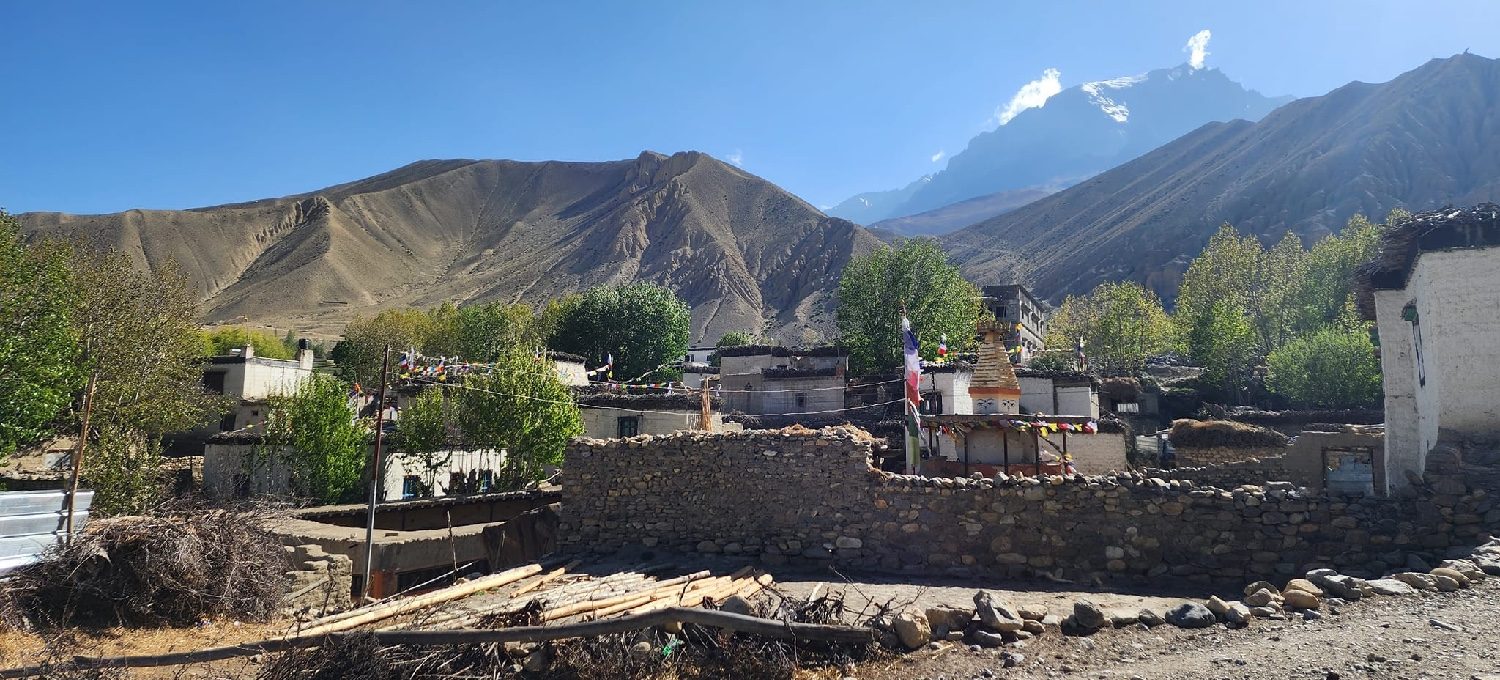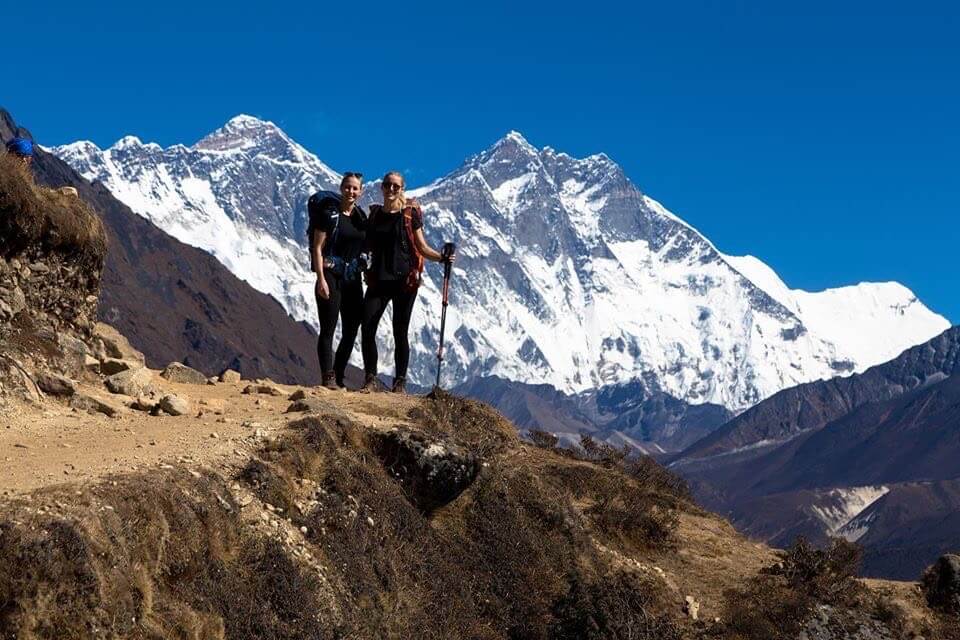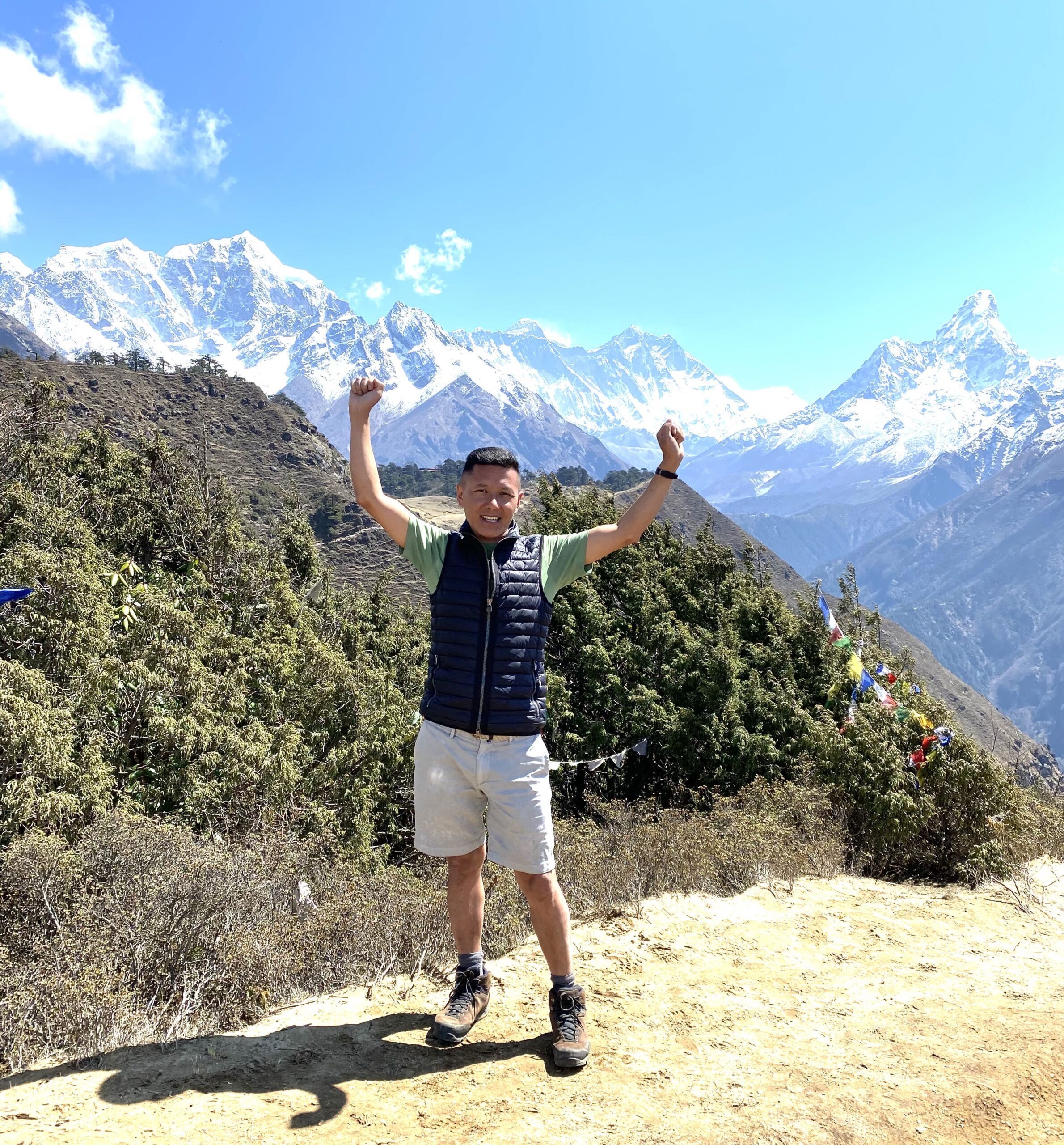- 10 Days
- 5,240m.

The Upper Mustang Trek takes you to the Mustang district’s last forbidden world, very close to the Tibetan border. This 14-day Upper Mustang Trek takes you to Nepal’s most preserved and isolated region.
As the topography and culture resemble that of Tibet, this region is also known as ‘Mini Tibet in Nepal’.
It’s the most interesting and unspoiled destinations in Nepal. It consists of high-altitude deserts, red-rock cliffs. Also, the deep gorges of the river and the view of some of the highest mountains in the world add to the beauty.
On this trek, you walk to the walled town of Lo-Manthang, which belongs to King Lo. And here you’ll see the four-story palace and some of the beautiful architecture.
The 14-day Upper Mustang trek begins with a scenic flight from Pokhara Lake City to Jomsom. Take every moment to learn, embrace, and refresh your mind while observing this spectacular natural beauty.
Upper Mustang is located in the Himalayan rain shadow, making it a great monsoon trek and open year-round for travelers.
The best time for this trek is from mid-February to late November. It is impossible to trek in December and January due to very cold and heavy snowfalls. Optionally, the Tiji Monsoon Festival is highly recommended. The festival is bound to be one of the most memorable treks in the Upper Mustang.
Pre-monsoon / spring (March to May) and post-monsoon / fall (October to November) are the best time for visiting and trekking in many places in Nepal, but Upper Mustang is the best during the Tiji festival, unlike many other destinations in Nepal.
Accommodations are provided on the twin-sharing basis. If you are a solo traveler, a single supplement will be served. Accommodations during the trek in the Himalayas, you will be staying at basic mountain lodges where you’ll have a nice and clean room with the warm blankets, pillows, and comfortable matrices (matrices may not be very thick size but they’re comfortable).
During the trek, we can enjoy authentic Nepalese food as well the more common international cuisine (Tibetan, Continental, Italian, Indian, etc.). Breakfast and dinner will be served from a lodge menu where we spend the night whereas lunch will be served on the way to the next destination. All meals will be provided during trekking, there will also be a farewell dinner
Welcome to the Himalayas! You will arrive in Kathmandu. We will meet and greet and take you to your hotel.
Today is free and rest day in Kathmandu, or you can wander around the city to get familiar with the surrounding. There are varieties of shops and fun places where you can hang out and enjoy the time.
Today, it’s free for sightseeing in Kathmandu. You may want to visit Durbar Square in the heart of the old town, where the old Royal Palace with its intricate woodcarving is located. The whole area is a labyrinth of temples and images.
The narrow alleys that lead away from the square in all directions, full of the most amazing variety of shops and stalls. Some of these landmarks are considered World Heritage Sites, including the historic Bhaktapur Durbar Square, the famous Monkey Temple Swayambhunath and the Buddhist Shrine Buddhanath, one of the largest stupas in the world.
Today, there will also be a trip briefing with gear check. If you need to rent or buy equipment locally, there will be time to do this today.
Your guide will pick you up at 6:30 am from the hotel and take you to the tourist bus station. The bus leaves to Pokhara at about 7:30 am.
Also known for its panoramic views of Annapurna and Machapuchare (Fishtail) in the north, Dhaulagiri in the west and LamjungHimal and Manaslu in the south, Pokhara is a lovely valley on the banks of the Fewa Lake.
It’s lower than Kathmandu and much less hectic, making it the ideal starting point for your journey. Overnight at hotel in Pokhara.
From Pokhara, you will fly to Jomsom. Usually this is a morning flight. The flight of 20 minutes offers an incredible view of the magical mountains of the region.
Upon arrival at Jomsom, you will meet the rest of the trekking staff. You will have a guide with you from Kathmandu.
We will start our trek to Kagbeni, the main gateway to the Upper Mustang.You will follow the path along the Kali Gandaki River. After about three hours of trekking, you’ll reach the beautiful village of Kagbeni.
After breakfast at Kagbeni, you start a steep hike. You get a great view of Kagbeni from the top. From here, you will trek towards the Chusang valley via Tangbe.
Some of the trails run along the side of the valley today, and others through the riverbed. It’s easier and smoother the riverbed.
Along the way, you can enjoy the traditional red and whitewashed houses, the Kalibiru, the Sky caves, the Rock tunnel and the organic apple farm. You can also see the beautiful and ancient Buddhist monasteries and the Chortens.
In Chusang, you’re going to stop for lunch. After passing several ridges and streams along the trail, you leave the Kali Gandaki Valley and the Manangi culture. You will then reach Chele and begin to see the Tibetan influence onculture and lifestyle.
Today, you will come across the Taklam La Pass. Once you cross this and pass through the different terrains of Mustang, you’ll see Yakawa Kang, Tilicho Peak, and Damodar Hill.
From here, you are walking towards the village of Samar. Now, you descend down the ridge into the large gorge. You will cross through a forest of juniper trees and many chortens to get Shyangmochen.
Shyangmochen is your lunch stop. You can visit the nearby Rang Byung cave to see the natural caves that have taken the shape of a stupa.
From here, you go down to Geling, passing number of gompas and barley fields. You will stay here for the night.
Once you leave Gheling, you will hike through the driest part of Mustang. From here, you’re passing through the fields to reach Nyala at 4,000m. From there, you pass a steep route and reach Ghami village. It is the largest barren field in the Lo region.
You will reach the longest mani wall of Lo after crossing the Ghami River. The trail from here to Choya la 3870 m is the hardest part of the trail. From here, you get a wonderful mountain view of Mt. Annapurna Dhaulagiri Tukuche, Nilgiri, Thorong peak.
After this, you go down and pass the Chorten gate to reach the village of Charang. You can visit the ancient palace and the Charang monastery in Charang. Also, overnight at Charang.
Today is one of the short and easiest days of trip. Once you reach Lo La (3,960m), you’ll see the first glimpse of Lo Manthang.
From this pass, you walk down a short, dusty route to reach Lo Manthang, the walled capital of Lo. Interacting with locals will give you a unique experience of Tibetan culture and lifestyle.
Overnight in a lodge at Lo-Manthang.
Today is a day rest and acclimatization. You can choose to rest or discover the Lo Manthang area.
These may include a visit to the town of Chosar, religious communities, and stupas. You can also visit the four major Gompas: Namgyal Gompa, Chamba Lhakhang, Thugchen Gompa and Chiodi Gompa.
You can also visit the King’s Palace, a four-story building in the center of town. Optionally, you can visit Tingkah. This is the last village to the northwest of Lo Manthang, offering a panoramic view of the mountains.
The journey takes you across the highest pass of the trek, Lugri La Pass (4,200m). You also get a last look at Lo Manthang before bidding farewell.
You have a short but steep walk down the yellow canyon to Tamar after the pass. Here you will see numerous caves above the village, accessible only to rock climbers.
From here, you will climb the hill which will take you to the small village of Ghami and the long mani wall.
The return trip to Chele is a direct route to Tamagaun. We’re not going via Geling. You start with a hike to reach the summit of Nyala.
You descend to the other side of the pass from here and walk toward Shyangmochen. There are a lot of ups and downs while descending to Chele. Overnight at Chele.
It’s the last day of your actual trek. You will trek back following the same trail you came. After breakfast, head for Chusung to the steep ridge to reach Tangbe.
From here, you’re going down to the river bed to walk to Kagbeni. From Kagbeni, you’re walking through Kali Gandaki to reach Jomsom. Arrive toJomsom and celebrate the last day of the trek, with all the trekking staff.
We will take an early morning flight to Pokhara. The flight passes through the gorge between the mountains of Annapurna and Dhaulagiri, making the flight itself an amazing experience.
After arriving in Pokhara, we can spend the rest of the day relaxing. Overnight in Pokhara.
We leave for Kathmandu at about 7:30 a.m. by tourist bus. We’re back in Kathmandu at around 3 PM.
In the evening we will have a farewell dinner in a typical Nepalese restaurant with culture show.
Today, you can either stay back and relax a free day in Kathmandu or leave for your respective country. Our staff will drop you off at the Airport according to your flight schedule.
We hope you had a wonderful time Trekking in Nepal with us and we look forward to your next trip with us in the future.
Upper Mustang is located in a rain shadow area where there is very little chance of rainfall. Therefore, this is an evergreen trek that can be done at any time of the year.

Magical Summits is your key to seeing the Himalayas through a local lens. Being a native Sherpa-owned active holiday company, by providing unparalleled and personalized customer service, Magical Summits is born to the top of Nepal’s very competitive travel market.
At Magical Summits, we pride ourselves in making that extra effort to give all of our clients our personal touch, crafting each holiday to suits your needs, desires, and budget, to create unforgettable vacation experiences. Ready? Let's go!
"I was born and raised in Nepal, nearby Everest region. I am proud to be a native Sherpa, and I have been a Mountain guide over a decade now. Following my passion, I decided to start helping travelers with their travel plans! I think life is a journey, a trip where you collect experiences when you share with other people and with nature."
